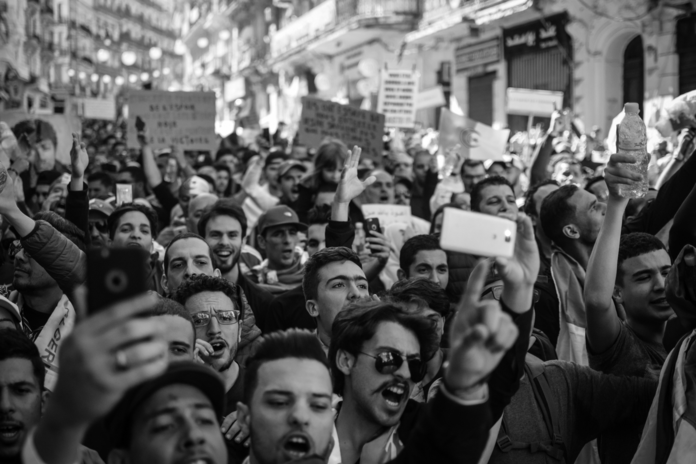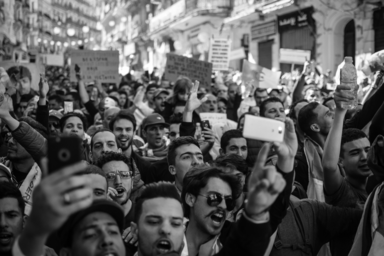Coming from author, activist, and professor Angela Davis, “Freedom Is a Constant Struggle,” discusses the role of globalization and intersecting factors when it comes to universal oppression. As the author discusses issues from the Black Lives Matter protests to Palestine, within the text, it is evident that Davis encourages readers to dig deeper. To not only think of representation but to question, how is representation being used, and does it correlate to political tokenism when we de-center accountability and engage in equating politicians with celebrity status and culture? As this book was released in 2016, here is the historical context. 2016 was the year which for many, marked a “changing” point in U.S. politics for obvious reasons yet the tone of the book conveys that neoliberalism and conservatism have always been prevalent problems in which Global North actors such as the United States had no problem engaging in and embedding within its core. If there is anything present in Davis’ book, it is the importance of action triumphing over lip service, while also making it known that there is no in-between when it comes to liberation. Silence will always be in connection with complacency and complicity. Within this article, four essential points will be highlighted and relayed to the reader for the purpose of considering the importance and weight of Davis’ words.

Policing and the Carceral, Capitalist State.
Policing and capitalism murders. We are aware of this yet many fail to realize how much policing has an impact on Black and Brown communities while also not tying in how capitalism is the ideological and financial system connecting it all. Capitalism is not just money and profit, it is also control, power, white supremacy, and the ability to push globalization and imperialism in order to maintain the status quo, regardless of any consequences that will continue the genocides against Black and Indigenous communities as well as attempting to silence and dehumanize the perspectives of Queer, Trans*, Disabled and other marginalized communities. In Chapter One, “Progressive Struggles against Insidious Capitalist Individualism,” journalist Frank Barat said the following, “Since the rise of global capitalism and related ideologies associated with neoliberalism, it has become especially important to identify the dangers of individualism. Progressive struggles — whether they are focused on racism, repression, poverty or other issues — are doomed to fail if they do not also attempt to develop a consciousness of the insidious promotion of capitalist individualism.” The weight of this quote is invested in how much of a role capitalism and neoliberalism plays in regard to the continuation of oppression and how “dangerous” it is when folks actively think in a passive nature of “self” over the importance of recognizing both personal and community needs. The connection between individualism coupled with capitalism is the ideal of self-interest being prioritized in order to benefit from imperialism and colonial narratives such as the American Dream in the United States as well as cultural assimilation into whiteness which is expected from communities of color when it is to the United States’ delusion of the appeal when it relates to the “Melting Pot” trope. The idea of marginalized folks being able to “make it” if they work “harder” needs to be retired and abolished. Not only do marginalized communities have different circumstances, but systems within this country have also shown time and time again that you can not gloss over what is deeply embedded into the national framework as well as what is the foundation of a nation-state and its relations to other international powers who capitalize on white supremacy as the default and the all-encompassing structural for societal reinforcement.

Intersectionality Is Still the Root.
One of the top book recommendations from Davis’ work is “Women, Race, and Class,” intersectionality is a prevalent theme within the reading. For a refresher, intersectionality is a practice and framework centered on acknowledging the ways race, gender, class, sexuality and all other identity-oriented aspects are connected in order to examine oppression and other societal facets. While the term was coined by professor Kimberle Crenshaw in 1989 (a Black woman), it is essential to note that intersectionality has always been in practice as well as centering what intersectionality means for Black women and folks as this ideology is one in which we cultivated and centered in order to center our fight for liberation and community care. When asked about the definition of Black Feminism in Chapter One, Davis states, “ Black feminism emerged as a theoretical and practical effort demonstrating that race, gender, and class are inseparable in the social worlds we inhabit. At the time of its emergence, Black women were frequently asked to choose whether the Black movement or the women’s movement was most important. The response was that this was the wrong question.” Davis outlines the issue that Black women still face when it comes to non-Black women, specifically white women when it comes to attempting to force women of color, particularly Black women to conform to a watered-down form of “equality” for the sake of respectability politics and hegemonic feminism. With intersectionality and Black Feminism, there are recognitions that liberation should not come at a cost or a push to “wait” for the sake of satisfying white supremacist status-quo powers. Acknowledging one’s identities while also making no excuses for the societal infringements placed upon marginalized folks recognizes one step towards action and commitment. This should go without saying; Black women and our spaces must be protected and not invaded by those who do not share our experiences. It is also a necessity to ensure that Trans* women and Non-Binary, Queer folks, and Non-Binary folks are centered in these spaces as well as the point is not to be based on traditional, patriarchal heteronormativity. The goal is not universal liberation with color-blindness or “girl power” feminism as those behaviors are only used to engage in oversimplification in juxtaposition to recognizing one’s humanity because to others, it requires too much “work,” while avoiding accountability by all means. Intersectionality as the core root begins a process of community, accountability and a responsibility to see where you can aid, listen, affirm, protect and center.

Racial Violence.
Black liberation is more than simply saying, “Black Lives Matter.” As a matter of fact, this statement should be furthered to emphasize that the language and representation of Black liberation movements have not only been co-opted and constructed for presentability for the white gaze, it has also attempted to derail and silence the voices of Black “leftists” and activists directly classifying neoliberalism and other white supremacist agents for the sake of maintaining some sort of a sugarcoated illusion in order for liberal sectors to feel more “hopeful” about turning around and oversimplifying any systemic issue through a one-sentence tweet. In the book, Davis defines the Black Power Movement through this lens, “I think of the Black Power Movement — or what we referred to at the time was the Black liberation movement — as a particular movement in the development of the quest for Black freedom. In many ways it was a response to what was perceived as limitations of the civil rights movement: we not only needed to claim legal rights within the existing society but also to demand substantive rights — in jobs, housing, health care, education, etcetera — and to challenge the very structure of society.” Through the excerpt, Davis not only defines the Black Power movement, but they also emphasize how Black liberation consisted of all aspects of living in which Black folks were (and still are) denied from in society. But what is society? Society is the all-encompassing comfort and universal support platform and basis for white supremacy, capitalism, globalization and oppression can advance and build with each other through years to decades as structural and social powers allow for those infringements to serve as generational trauma against marginalized communities. Society centers whiteness and pushes punishment of Black and Brown folks while using those very communities through cultural imperialism and other means for profit, exploitation and manipulation through nation-state sanctioned violence and hegemony.

Commitment Over Tokenization.
As Angela Davis has contributed much towards Black liberation, it is significant to understand the importance of not tokenizing her work, words and the various phenomenal Black women and their works when it comes to using their platforms in order to call out and hold accountable systems and institutions of injustice. As Davis discussed the violent nature of the carceral state and the intersections of racial violence, her words and actions make it undeniably clear that abolition is a beginning step. As many folks fail to recognize the importance of abolition, its origins and the necessity to engage in the work, the author couples abolition with community care as society has so often neglected Black and Brown communities as it is ingrained in its very core and being: white supremacy and capitalism. Instead of playing into the “trendy” games of watering down the words of Black leaders, fully confront yourself with their words and hold yourself to account through action. If you are comfortable and go with a fantasized version that has been taught to you through revisionist history, the question is, are you truly peeling back multiple layers or trying to make yourself comfortable? Are you willing to recognize the important steps you have to take or are you trying to play it safe? For the purpose of liberation, there simply is no in-between. Either you’re in or you’re out. The luxury of your privilege is, you have that choice to make while marginalized communities do not.



